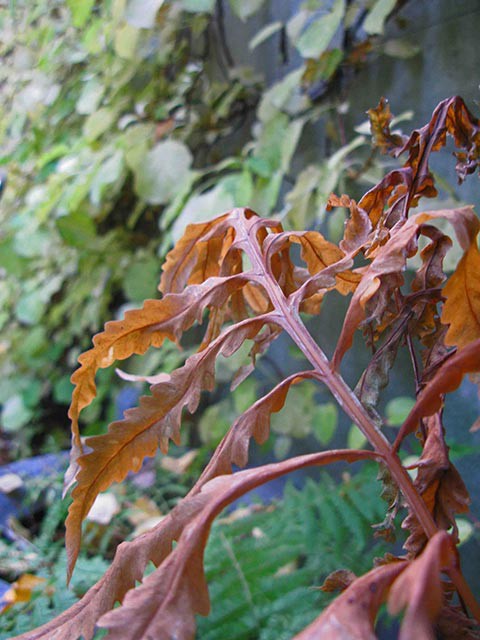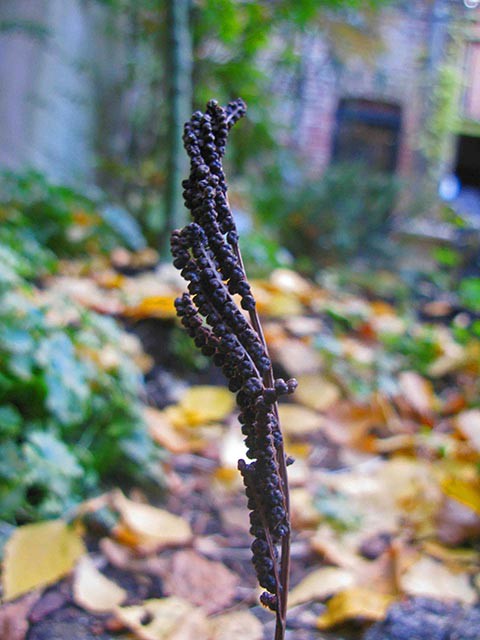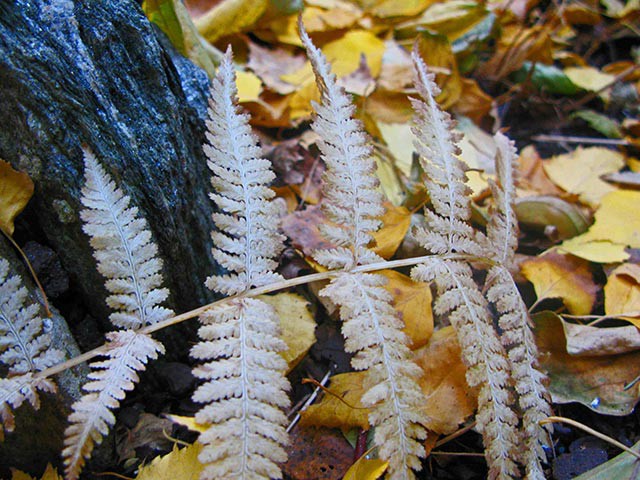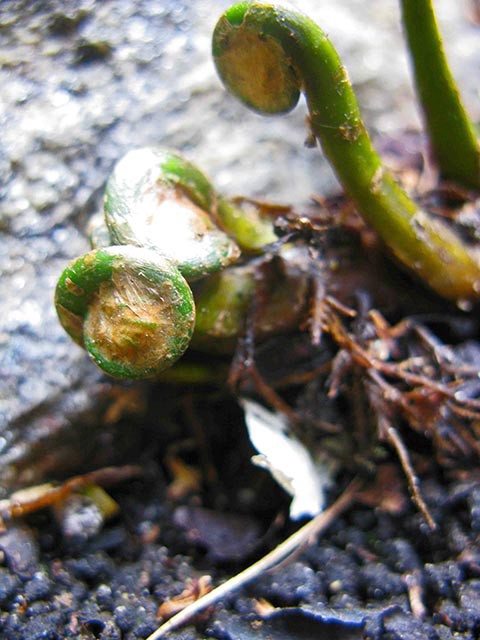One Day Soon, Ferns Will Rule the World

As we head into the late days of November, at least here in the region around New York City, most of the ferns have turned sallow and dry, so that it’s difficult to believe that only a few months ago, they formed a lush, dense carpet of shadowy green on forest floors everywhere. While it’s tempting to be taken in by these superficial signs of frailty and expiration, do not be deceived: those of us who spend time with ferns understand that they are plotting, and one day soon will again rule the world.

For those of you not acquainted with ferns, or think of them mostly as adornments to Belle Epoque interiors or art nouveau borders, it’s worth remembering a few facts: 1) Ferns have been on the earth for 360 millions years, which is at least 100 times longer than Microsoft, Google, and Apple combined, and 2) ferns reproduce with SPORES.

If ferns are so powerful, why did they relinquish their reign on the planet? The answer is simple: they were exhausted after killing off the dinosaurs. If you don’t believe me, there are fossilized images of ferns chomping down Tyrannosaurus Rexes like amuse-bouches. The government has kept these images secret for obvious reasons and, moreover, has invented distracting stories about UFOs, but rest assured, my friends, it’s not the aliens we should be afraid of. The ferns have merely been resting, but will soon enough wake up en masse to begin a march of unprecedented propagation and destruction that will leave every remnant of human civilization buried under a seething jungle of roots and fronds.

Ferns have already infiltrated high sectors of government and industry, which should be apparent to anyone who has studied global warming. Do you seriously think ferns are bothered by climate change? To the contrary, they have engineered it. As we die off, they will just grow bigger and stronger; if the seas rise, ferns will colonize the ocean floor just as happily as they will the cities and the suburbs. Even the cockroaches are afraid of ferns.

The next time you go for a walk in the woods — or really anywhere that’s not completely embedded in at least ten feet of pristine concrete — listen carefully, because underneath the rustling of the dead leaves, and beyond what you may imagine is the wind or the distant howling of wolves, you will hear what is actually the laughter of ferns as they unroll their sporey fronds and prepare to eat your soul.

Matthew Gallaway is the author of The Metropolis Case and the director of Remembrance of Things Past.
